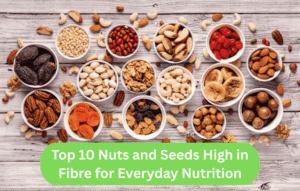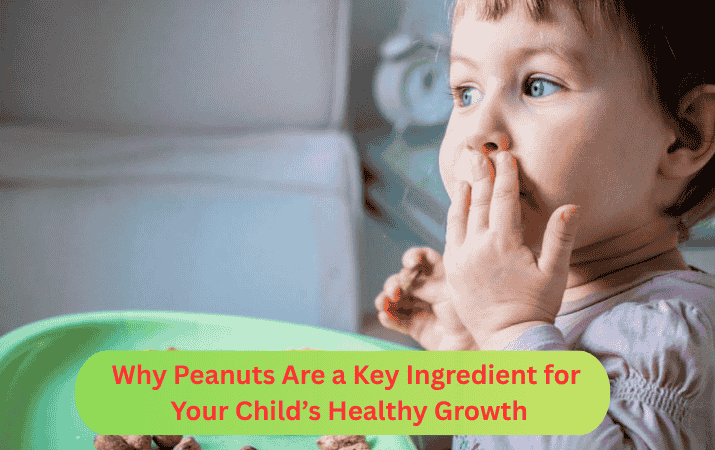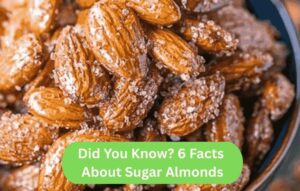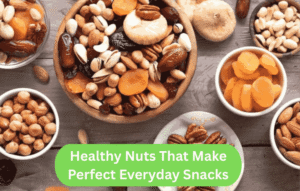
Why Peanuts Are a Key Ingredient for Your Child’s Healthy Growth

Introduction
Peanuts are often regarded as simple snack foods, but they are much more than that. Packed with essential nutrients, they play a vital role in supporting children’s growth and overall health. Introducing peanuts into your child’s diet, in safe and appropriate ways, can provide numerous benefits that contribute to physical development, brain function, and long-term well-being.
Nutritional Profile of Peanuts
Peanuts are legumes rich in protein, healthy fats, vitamins, and minerals, making them an excellent food for growing children. Here’s what makes them so nutritious:
- Protein: Essential for muscle development, tissue repair, and immune function.
- Healthy Fats: Mostly monounsaturated and polyunsaturated fats, which support brain health and energy.
- Vitamins: Includes vitamin E, B vitamins (especially niacin and folate), and small amounts of vitamin K.
- Minerals: Contains magnesium, phosphorus, potassium, and zinc—all crucial for growth and bone development.
- Antioxidants: Peanuts are rich in compounds like resveratrol and polyphenols that help protect cells from damage.
These nutrients make peanuts a compact and nutrient-dense addition to a child’s diet.
Health Benefits of Peanuts for Children
Peanuts and Brain Development
For brains to grow properly, kids need fats and proteins. Nuts like peanuts have healthy fats that help neurones and brain cells grow. Nuts also contain B vitamins, like niacin and folate, which help the brain make neurotransmitters and work properly. Adding peanuts to kids’ meals or snacks on a regular basis can help them stay awake, remember things, and learn better.
Supporting Muscle and Bone Growth
Peanuts have protein and vitamins that your body needs to grow strong bones and muscles. Magnesium and phosphorus help the body absorb calcium, which is important for strong bones. Another element that can be found in peanuts is zinc, which helps cells grow and repair. This is especially important when kids are growing quickly.
Boosting Energy Levels
Kids are always moving around, so their bodies need energy that lasts all day. Peanuts are a good source of protein, fats, and fibre, all of which release energy slowly. This helps kids keep their energy levels steady, keeps them from getting tired, and keeps them busy and focused at school and play. Unlike sugary snacks, peanuts are good for you and keep your energy level steady.
Strengthening Immunity
Peanuts contain nutrients that strengthen the immune system, such as zinc, vitamin E, and protein. These components support the production of white blood cells, help fight infections, and promote faster recovery from illnesses. Including peanuts as part of a balanced diet helps children build resilience against common infections.
Heart Health from an Early Age
Adults talk a lot about heart health, but habits formed in youth affect heart health throughout life. Peanuts have healthy monounsaturated and polyunsaturated fats that help keep cholesterol levels in check and keep the heart working well. Introducing these fats to kids early on can help them develop a taste for heart-healthy foods.
How to Safely Introduce Peanuts to Children
While peanuts are highly nutritious, they can also be a common allergen. It is important to introduce them carefully:
- Start Small: Begin with tiny amounts, such as peanut butter mixed into oatmeal or yogurt.
- Monitor for Allergies: Watch for signs of allergic reactions, such as hives, swelling, or difficulty breathing. Consult a paediatrician if allergies are suspected.
- Avoid Whole Peanuts for Young Children: Whole peanuts pose a choking risk for children under four. Instead, offer peanut butter or finely ground peanuts.
Mix with Other Foods: Peanuts can be incorporated into smoothies, baked goods, or snack bars, making them easier for children to eat safely.
Creative Ways to Include Peanuts in a Child’s Diet
1. Peanut Butter Sandwiches: A classic and simple option, peanut butter sandwiches can be paired with whole-grain bread for added fibre and nutrition.
2. Smoothies: Adding a spoonful of peanut butter to fruit smoothies not only enhances flavour but also boosts protein and healthy fat content.
3. Nutty Snack Bars: Homemade snack bars with peanuts, oats, and honey are excellent for after-school energy boosts.
4. Peanut Toppings: Sprinkle crushed peanuts over yogurt, salads, or desserts to add crunch and nutrients.
5. Peanut-Based Sauces: In dishes like stir-fries or noodle recipes, peanut sauces can introduce children to new Flavors while delivering nutrition.
Taking Care of Common Issues
Allergies: Kids are more likely than adults to be allergic to peanuts. Sometimes, introducing something early and with a doctor’s help can lower the risk of serious allergies. If there is a history of allergies in the family, you should always be careful and talk to a doctor before giving your child peanuts.
Choking Hazards: Little kids shouldn’t eat whole peanuts or big chunks of them. You can use peanut butter or peanuts that have been ground very fine instead.
Moderation: Peanuts are healthy, but they also have a lot of calories. Moderate amounts make sure that kids get the benefits without eating too many calories.
Conclusion
Peanuts aren’t just another salty snack. These foods are full of many healthy nutrients that help your kid grow, learn, and stay healthy. Peanuts are a simple way for kids to get the protein, healthy fats, and vitamins they need every day. They can be added to snacks, lunchboxes, or homemade meals.
Peanuts can be a healthy part of every meal, which can help kids develop good habits early on. These little decisions help kids have healthier futures, stronger bodies, and minds that are busy.



